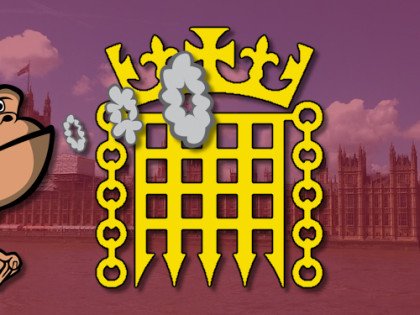Rosa DeLauro and Elizabeth Esty are this week’s example of lazy thinking, disposition to hyperbole and fear mongering: “We cannot afford a setback in the progress we have made limiting tobacco use. Consumers need to understand the possible health consequences of using e-cigarettes and the need to keep these toxic nicotine delivery devices out of our children’s hands.”
Reuters reports: “Frustrated by the slow pace of federal action, state attorneys general are waging their own campaigns against the sale and advertising of e-cigarettes to minors.” The news agency highlights the cogitative disconnect taking place as legislators confuse the use of nicotine with the dangers posed by smoking as they quote a state governor: “The key is to avoid another generation being addicted to nicotine.”
Vapers will wonder why a drug as innocuous as the omnipresent caffeine should instil such fear? They will also wonder why everyone has to pay the price for a handful of irresponsible parents? The answer is that this is a campaign against vaping driven by dogma and vested interest.
The South China Morning Post covered a piece of research: “Of 361 primary school children under the age of 12 surveyed, 3 per cent said they had tried e-cigarettes at least once. About 20 per cent said they knew where to buy the products.” It is clearly unacceptable that 10.83 children have had access to vaping equipment but well done to the parents of the 350.17 other children for doing their job properly.
Banning substances as a measure to protect children from gaining access is never a solution, it doesn’t work. In 2014 the Telegraph wrote: “Children as young as four are among hundreds of youngsters being referred to specialist drug and alcohol treatment services in the UK,” and in January the Mail printed: “Dozens of primary school children are suspended every year for being drunk or high on drugs, shocking figures reveal...One child at primary school is suspended every week for drink and drugs, shocking figures reveal.”
But to what extent is the danger posed to children by vaping?
Avoiding the issue of nicotine being toxic, something that is circumvented by childproof caps and responsible parenting, the threat is virtually nil. The much heralded threat goes along the lines that children will vape, become addicted to nicotine and then progress onto smoking cigarettes – this is referred to as the ‘Gateway effect’.
Linda Bauld, a professor of health policy at the University of Stirling, describes the gateway effect – or rather lack of it: “There’s a common perception that the rise we’ve seen in the use of electronic cigarettes will lead to a new generation of adults who have never smoked but are dependent on nicotine. This fear is based on the expectation that due to the appeal of the products, children who have never used tobacco will be attracted to e-cigarettes and start to use them regularly.”
“Our survey is in line with others in the different parts of the UK that show this is not happening. Young people are certainly experimenting with e-cigarettes, some of which do contain nicotine. However, our data show that at the moment this experimentation is not translating into regular us.”
The survey to which she is referring is published on the Cancer Research UK website.
How many more pieces of research will it take until the likes of Rosa DeLauro and Elizabeth Esty stop hyping a non-existent problem? In all likelihood there will never be enough to convince them.
Dave Cross
Journalist at POTVDave is a freelance writer; with articles on music, motorbikes, football, pop-science, vaping and tobacco harm reduction in Sounds, Melody Maker, UBG, AWoL, Bike, When Saturday Comes, Vape News Magazine, and syndicated across the Johnston Press group. He was published in an anthology of “Greatest Football Writing”, but still believes this was a mistake. Dave contributes sketches to comedy shows and used to co-host a radio sketch show. He’s worked with numerous start-ups to develop content for their websites.
Join the discussion
Parliament Fears Two
The Department for Environment, Food and Rural Affairs faced questions from a Conservative MP and, oddly, a member of the Department for Environment, Food and Rural Affairs
Harm Reduction For The Rich
The United Kingdom risks becoming a harm reduction country only for the wealthy, according to Michael Landl of the World Vapers’ Alliance
Sacrificing Health For 2p Cut
Tory Government alienates vaping voters with its mission to cut tax by an unaffordable 2p to attract voters by placing a tax on vape products in the forthcoming budget
Parliament
Andrea Leadsom has been quizzed by Rupa Huq and Derek Thomas about the promotion of vaping and support to those who want to quit











